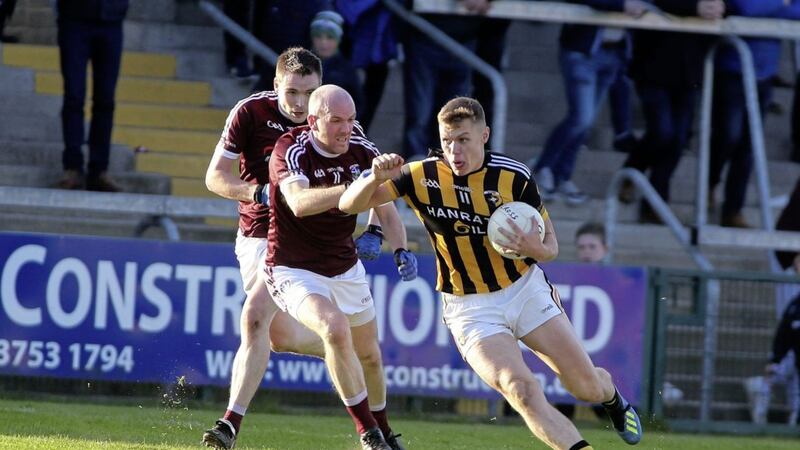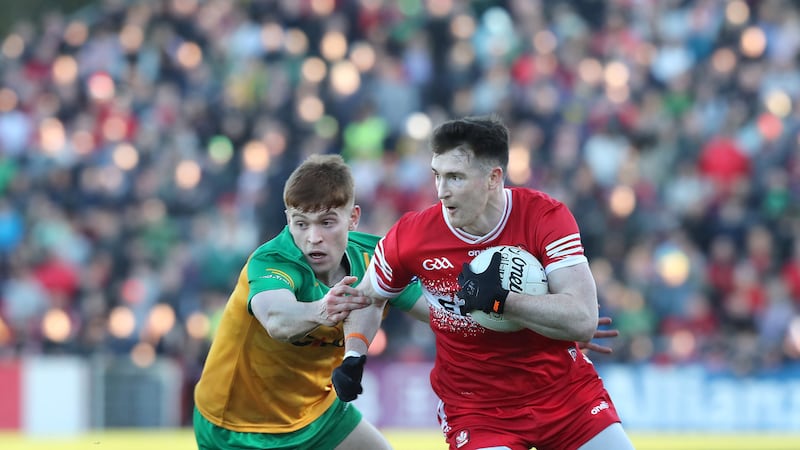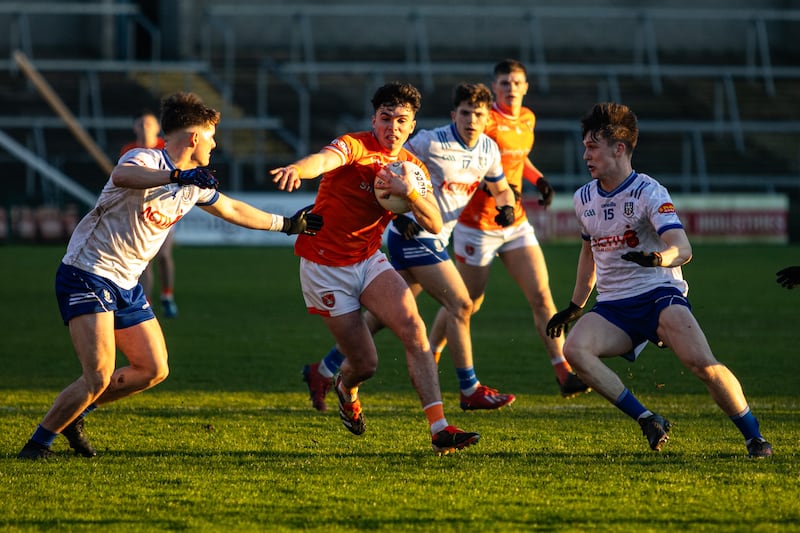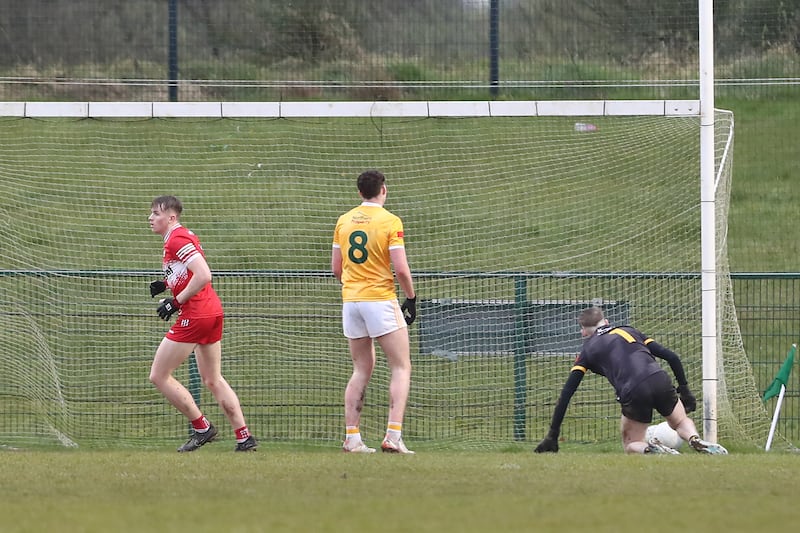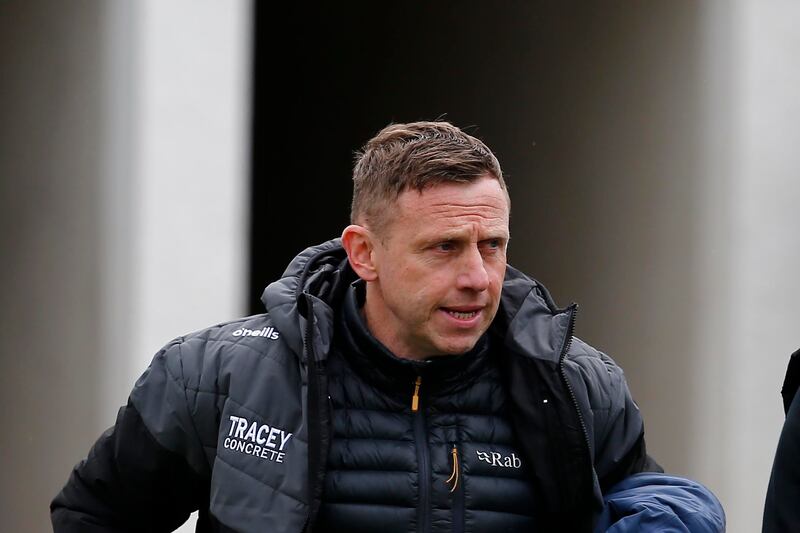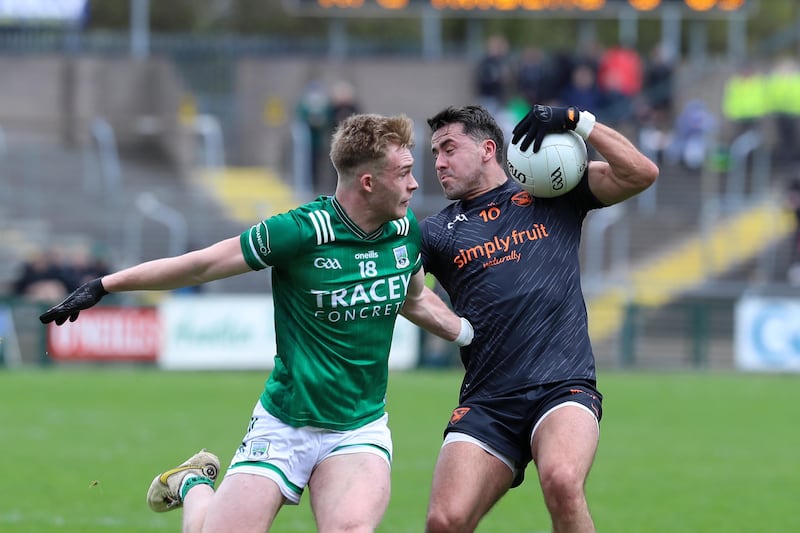STREAMING of Gaelic Games at club level has become an increasingly popular part of GAA coverage with supporters and it’s now also a valuable source of revenue for cash-strapped county boards.
With fans allowed in limited numbers in the North and banned altogether from games on the other side of the border, streaming services are the only way supporters can watch their clubs play and thousands have signed up and logged-on across the country.
Recently the Wexford County Board announced that they had taken in E50,000 from streaming their hurling championship and many other counties, denied income from gate receipts, programme sales and refreshments kiosks, will hope their returns follow suit.
The trailblazers for the now commonplace internet service were the Armagh County Board who launched ‘Linwoods Armagh TV’ in 2013 and have watched it develop from strength to strength ever since.
Michael Geoghegan, who was appointed chairman of Croke Park’s new Development Control Committee earlier this year, was among the early supporters of the project which faced early opposition before it got off the ground.
It was Middletown clubman Geoghegan who approached Linwoods owner John Woods hoping to persuade him to sponsor the fledgling Armagh TV. After some initial scepticism, the bakery business owner saw the benefit of the streaming service and agreed.
“John went to an international trade fair in Canada,” Michael explained.
“His son Paddy was playing for Madden who were in the Armagh intermediate final while he was away. Of course he would have loved to have watched it and he realised then how much being able to watch games on-line would mean to ex-pats.”
With Woods’s financial backing, Armagh TV flourished and commentary from Damien McCullough has become a popular soundtrack for clashes throughout the Orchard County.
All of the other Ulster counties have followed suit with prices ranging from around £5 per game to £30 for a season pass and there have been no shortage of thrills or spills for fans. On Wednesday night Antrim commentator Jerome Quinn was as confused as most of his viewers and the St Gall’s players when St Enda’s scored a controversial post-drinks break goal.
“I was on the Armagh County Board when we went to the Ulster Council to see about streaming McKenna Cup matches and they wouldn’t hear tell of it,” Geoghegan recalled.
“Then we went to Padraic Duffy, Noel Flynn and Alan Milton in Croke Park and, in fairness to them, they allowed us to do it.”
Ulster GAA Radio began soon after that and from that base and, with assistance from Paul McGurk, streaming services branched out into the province’s counties who invested in equipment which allowed them to broadcast audio coverage of games. Video coverage was the natural next step.
“Counties are making their money over the last six weeks by streaming matches and that all started with Armagh,” said Geoghegan.
“We wouldn’t have been able to do that without John Woods who sponsored Armagh TV from the start and he’s still doing it.
“Nearly every other county has adopted it since then. The boys that are involved with Armagh TV, Paul Heaney and Kevin Fox, have brought in and trained a lot of people right through Ulster and from other counties.
“The model that Armagh came up with has been more or less replicated around the country now and it has saved the season for a lot of supporters who wouldn’t have seen games otherwise - not just senior games now, it’s intermediate and junior too and league games.
“It was a world-wide thing we thought of at the start to promote the games but it has turned into a thing that has done very well in Ireland because of this pandemic. It has gone from ex-pats to local-pats.”
